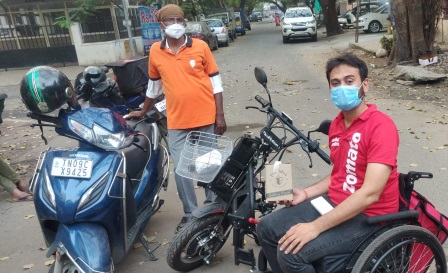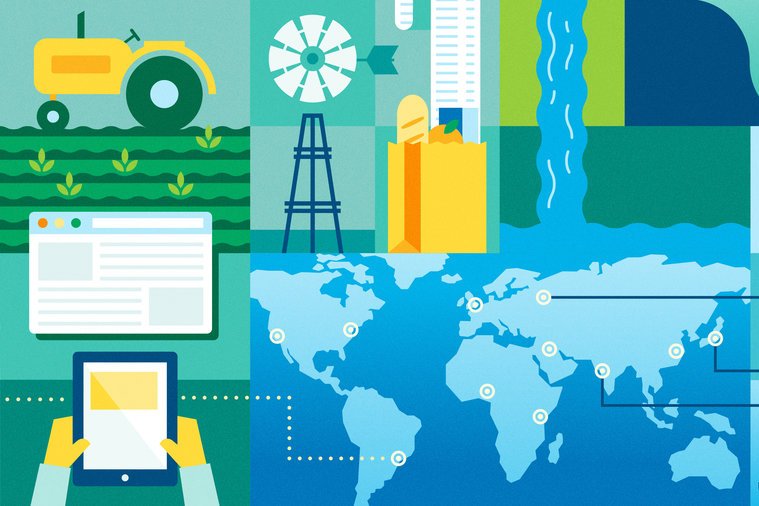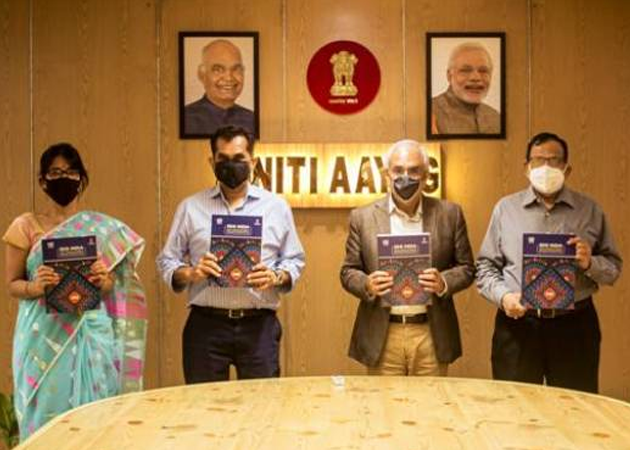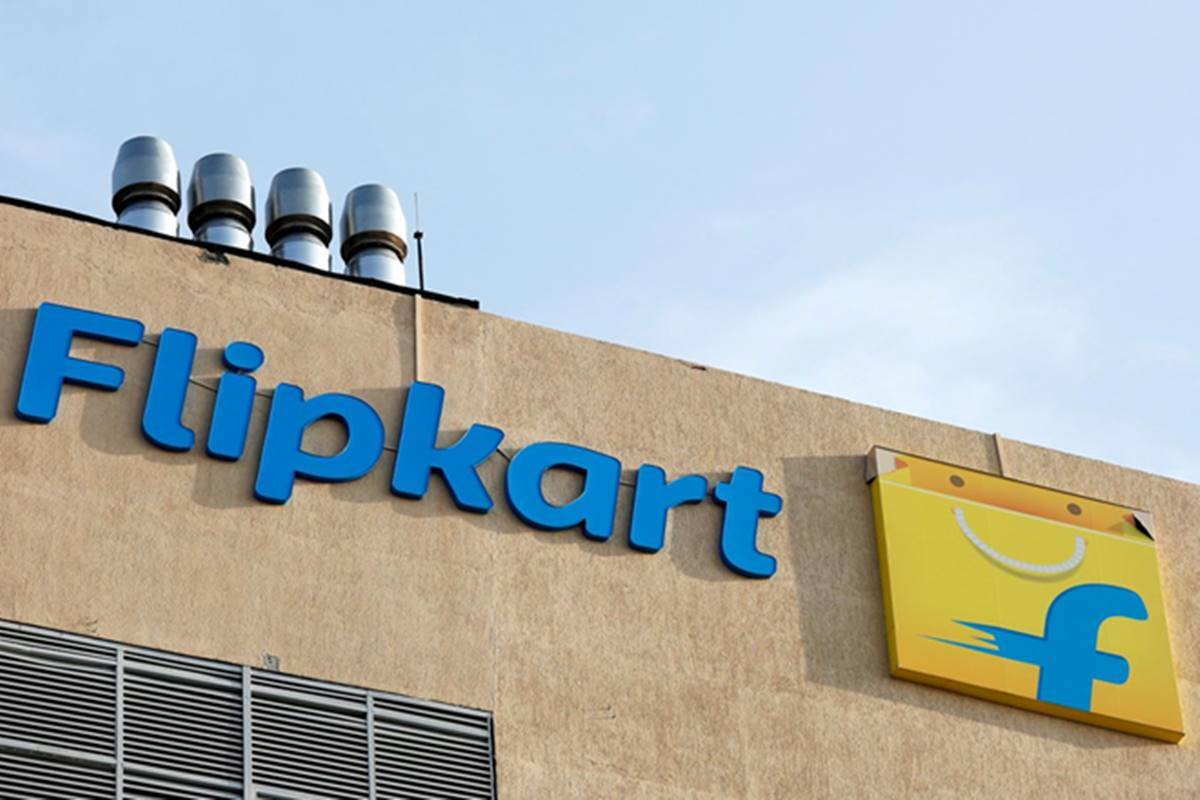When social problems are solved with innovative ideas, it brings new opportunities for all stakeholders. One such idea is NeoMotion which has come up with livelihood solution for specially-abled people where corporates can also contribute from their CSR fund to create social impact.
NeoMotion, incubated in IIT Madras, is creating customised mobility products to help specially-abled people; and also find livelihood opportunities which have so far been unconventional for them. Siddarth Daga, Head- Sales & Outreach at NeoMotion speaks to TheCSRUniverse on NeoMotion idea of solving a social problem with an innovative mindset. Scroll down to read the full interview:
Q: Where did this idea originate? What inspired you to start this project? Tell us about your journey.
A: NeoMotion’s journey began with the Standing Wheelchair project of Indian Institute of Technology (IIT) Madras that started in April 2015. The team travelled across the country for testing and interacted with over 200 wheelchair users and found that most wheelchair users are confined to four walls with poor health, no employment and no social engagement.
The two major problems that caught their attention were.
a. Lack of awareness and availability of a good wheelchair: One-size-fits-all wheelchairs, widely in use, offer incorrect posture and are difficult to propel. There is a lack of awareness of the extent of damage that a bad wheelchair can inflict on health even in a 3-month period, leave alone life time users.
b. Challenges in outdoor mobility: Conventional wheelchairs are unusable outdoors. For outdoor mobility people use alternates as tri-cycles and tri-scooters but these involve transfers from one device to another making the person always dependent. Consequently, many wheelchair users stay within their home.
Q: What is the thought process behind creating livelihood opportunities for specially-abled people in delivery space?
A: We noticed that many wheelchair users face challenge is finding a sustainable source of livelihood. They find it impossible to travel in the city. With public transport not being accessible, they have to use autos & taxis which is expensive on a daily basis. Moreover, initiatives like setting up a shop, Kirana store, etc, requires investment in space, inventory which becomes a recurring operational expense
Simultaneously, we all know that E-Commerce deliveries is growing exponentially in India. Zomato alone has approx. 4 Lakh Delivery agents across India. However, these deliveries are done by users on Two-Wheelers and Bikes.
These two above issues are the reason we started the idea of using E-Commerce last-mile deliveries as a source of livelihood for wheelchair users, given that they have an accessible and reliable means of Mobility.
Q: What kind of research was done before starting the initiative? Please share some data that you may have gathered along the way.
A: The R&D was done at the TTK Centre for Rehabilitation Research and Device Development, under the leadership of Prof Sujatha Srinivasan.
To check feasibility, NeoMotion has conducted a Pilot under Project - NeoFleet , which will provide both Mobility & Livelihood support to persons with Locomotor Disability. I, myself, used the NeoFly & NeoBolt for Zomato deliveries in Chennai. With a login time of 4.5 hours, I completed as many as 11 deliveries with a total earning of Rs 440!
Q: Are you also getting support from the corporates for this initiative? If yes, who are your corporate partners?
A: Yes. Corporate partners have helped us in funding and subsidizing the units for the end beneficiaries who cannot afford the product on their own capacity. Below is the list of few corporates who have supported our initiative.
- TATA Trust
- L&T Technology Services
- RR Donnelley
- Nilekani Philanthropies
- SGS India Pvt Ltd
- SBI Cards and Payments (ongoing)
Q: What are your expectations from your partners?
A: We expect our partners to financially support and fund batches of the NeoFleet in various cities and towns. We are working on a goal of completing 100 batches of NeoFleet, across 10 Cities in India, which can change close to 1000 lives.
We have modeled NeoFleet as an UpSkilling initiative that corporates can take up as a CSR Initiative. Each batch would have 10 users onboarded for a month, where they would be trained, provided the Mobility aids, additional batteries and allowed to do deliveries
We have a plan to create 10 beneficiaries in each batch. The cost of running one batch will be Rs 18 lakhs.
Q: What kind of changes would you like to see at the policy making and implementation level as far as the Government is concerned, when it comes to rolling out policies for the specially-abled community?
A: We wish a choice-based model for distributing mobility aids where each person has his/her own unique requirements with respect to mobility aids, depending on their disability and diagnosis. Providing a catalogue options of Mobility equipment, and allowing beneficiaries to choose the right wheelchair for themselves will ensure that each beneficiary would get the maximum impact out of the aid provided.
Q: How many specially-abled delivery persons do you have onboard under this initiative? What are the current service locations for NeoFleet?
A: Currently we have around 2 users across Tamil Nadu who have shown interest in the initiative and would be coming down to Chennai for the pilot project. They are peer mentors themselves and hope that this would be a successful case study to show to other wheelchair users, who are currently staying indoors without any source of income. They have already completed their registration on the Zomato platform.
Q: What were the key challenges you faced while implementing this initiative?
A: Last-mile access to homes is always a challenge for a wheelchair user. However, whenever I called the end customer to come down to collect the parcel, they obliged. So, while accessibility is a challenge currently, cooperation from individual users placing orders on the Apps and the restaurants was encouraging, and will go a long way to establish last-mile deliveries as a credible source of employment.
Q: How are you making your idea financially viable for your own organization?
A: We currently have an assembly unit in Chennai where our products are made ready. While we depend on CSR funds for certain projects, the majority of our orders come from paid users, who are wheelchair users themselves and see value in it. The revenue we generate from these orders finances our daily operations.
Q: What are your future plans?
A: We wish to enable wheelchair users to stay healthy, go out, explore life, get employed and be independent. We aim to touch 1 lakh lives every year in India by 2023. We are also looking at markets beyond India. We also have a line-up of products which are at proof-of-concept stage. These span across sectors like products for children, therapy, indoor standing, etc. And as we move in our journey, we will find more opportunities.

















.jpg)


